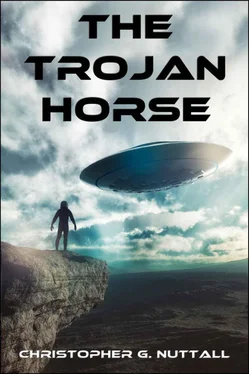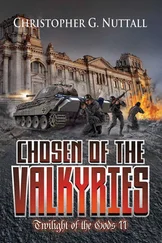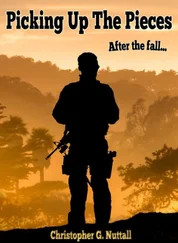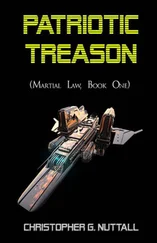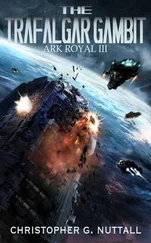He thought, just for a moment, of Toby. His youngest son was right in the heart of enemy territory, Washington DC. The Colonel, like many survivalists, treated Washington with great suspicion, an attitude that had only hardened over the years that Washington’s politicians had fiddled while the country burned down around them. It was one thing to talk — and political leaders could talk the hind leg off a donkey — but it was another thing to act… and nothing he’d seen had convinced him that Congress could pass an act to save its life, let alone the entire country. The first step in solving a problem was recognising that there actually was a problem and Washington’s stable of politicians would prefer to avoid admitting that for as long as possible. Who knew where the blame might fall?
“Let’s be clear about this,” the Colonel said. “We are at war with a force of unknown power. We don’t know what they are, we don’t know what they want and we don’t know what they can actually do. They have most of our politicians in their pockets and large parts of our society trust them more than they trust any human. All of our data consists of little more than wild-assed guessing. If there is anyone here who wishes to back out and hide, rather than try to fight, say so now. It will not be held against you.”
“Respectfully suggest,” Coleman grated, “that you stop insulting us and get down to business.”
The Colonel smiled. “Right,” he said. “The aliens are telling us to disarm. There’s only one logical reason for them to want us to disarm and that’s because they intend to invade — and intend to deprive us of the tools needed to resist them effectively. We are staring down the barrels of an alien invasion. God alone knows what they want from us, but I doubt they think that it is anything that we would give to them willingly.”
“Perhaps they want to eat us,” Packman suggested. Food seemed to have restored his good humour, although his eyes still looked haunted. “Maybe diced human is the food of choice among the stars.”
“Doubt it,” Coleman said. “Does anyone here believe that the Chinese or the Russians or the Arabs wouldn’t take the opportunity to sell troublemakers to alien butchers if it meant they would have access to alien technology?”
The Colonel couldn’t disagree. There were plenty of governments on Earth that didn’t put the well-being of their own citizens on their list of priorities, let alone anywhere near the top. It was one of the many reasons why he was glad to be an American. If African governments were prepared to allow famines to take place because the people starving belonged to hostile tribes, they wouldn’t hesitate to sell living humans to the aliens. Africans had been selling their fellow Africans into slavery long before there had ever been a United States of America. And the Chinese… if they were prepared to carry out a religious and ethnic genocide in Tibet and other regions, they wouldn’t hesitate to sell them off to butchers. Hell… he wouldn’t have put it past his own government.
“No,” the Colonel said. “They want something and the only answer that makes sense is that they want humanity’s industrial base. Anything else they could get by wreaking the planet or exterminating the human race.”
“No offense, but that can’t be right,” Packman said. “Why would they want humanity’s industrial base when we can barely lift a few tons into orbit? Building a ship like theirs would take at least fifty years; we’d have to build the tools to make the tools long before we even started work on the ship. What the hell do they want from us?”
Dawlish stroked his chin. “Maybe we’re more advanced than them in some areas,” he suggested. “The Japanese moved ahead in civilian computing technology…”
“Because we had all of our brightest minds going into the military,” Packman countered. “I find it impossible to believe that they don’t have everything we have and a great deal more…”
His voice trailed off, slowly. “Oh.”
The Colonel looked up at him. “Oh?”
“They need our industrial base because they don’t have one of their own,” Packman said. He shook his head slowly. “If they need to use our industrial base, it suggests that theirs is somehow lost — or missing.”
“Or maybe they intend to upgrade ours once they have control,” Coleman suggested. “How long would it take them to boost what we have to a level that can be used for building something comparable to theirs? For all we know, it’s cheaper to build a new industrial base here rather than ship equipment in from thousands of light years away…”
The Colonel held up a hand. “As interesting as this is, we need to start building a resistance,” he said, firmly. “Bob’s pointed out that the aliens will have access to government databases. We need to build a network without compromising ourselves — thoughts?”
“Nothing gets put online, ever,” Packman said. “And we don’t make telephone calls — at least not ones where we discuss anything sensitive. We meet our potential allies face-to-face…”
“Which would blow us wide open if the aliens have tagged one of them,” the Colonel said. He was still reeling from the news about the alien surveillance devices. If they’d bugged the President they could bug anyone — and it would be almost impossible to locate the devices without specialised equipment. Perhaps Toby could get his hands on some of it… maybe. “I think we’re going to have to assume the worst.”
“The worst is pretty bad,” Packman said. “I keep up with a few friends of mine from the Agency. We have ways of tracking people, even in godforsaken Afghanistan and Pakistan, without them ever even knowing that they’ve been tagged. And then we call in a Predator and drop a Hellfire on their heads. We must be very careful; someone who works with us may unwittingly lead the aliens to our location. I think we need to start creating smaller cells, right fucking now. The loss of one won’t destroy them all.”
The Colonel nodded. “We’ll reach out to anyone we know with real military experience,” he said. “We won’t touch anyone on active duty, not when their records are already in alien hands…”
“Our records will be in alien hands,” Packman pointed out. “We’re all former military or former intelligence…”
“We’ll have to pray that we’re not noticed,” the Colonel admitted. There were ways to pass unnoticed, even in modern society. He’d have to start tapping some of his more dubious friends for false ID and other counterfeit documents. The government had been more careful about identity fraud since 9/11. “If we allow fear to paralyse us, we won’t get anywhere at all.”
The discussion lasted long into the night. After a few more ideas had been dropped into the mix, the Colonel started writing them down on a notepad. They’d have to shred the paperwork once they’d finished the discussion, if only because the farm might be raided by government agents. The Colonel still remembered the arrogant agent who’d turned up because of a vague report that the farm was selling unprocessed milk to locals — never mind the fact that everyone who’d bought the milk was an adult and knew the risks. Government treated people like children or criminals…
“And we will have to devise a secure link to Toby,” he added, almost as an afterthought. Toby was in the best possible position to know what was about to happen. “How the hell do we do that?”
Washington DC
USA, Day 24
“Federation, Federation, Federation…”
Jason could hear the chanting protesters through the taxi’s closed windows. The elderly Pakistani who was driving the cab looked nervous as the protesters came into view, a disorganised mob of young people — mainly students — with a hard core of professional protesters. There were a number of police officers wearing riot gear watching the protest nervously, wondering if it would turn violent. The radio claimed that it was the largest single protest in America; hundreds of thousands were thronging the streets, demanding that the Government immediately accept the alien terms for starting down the long road towards Federation membership.
Читать дальше
